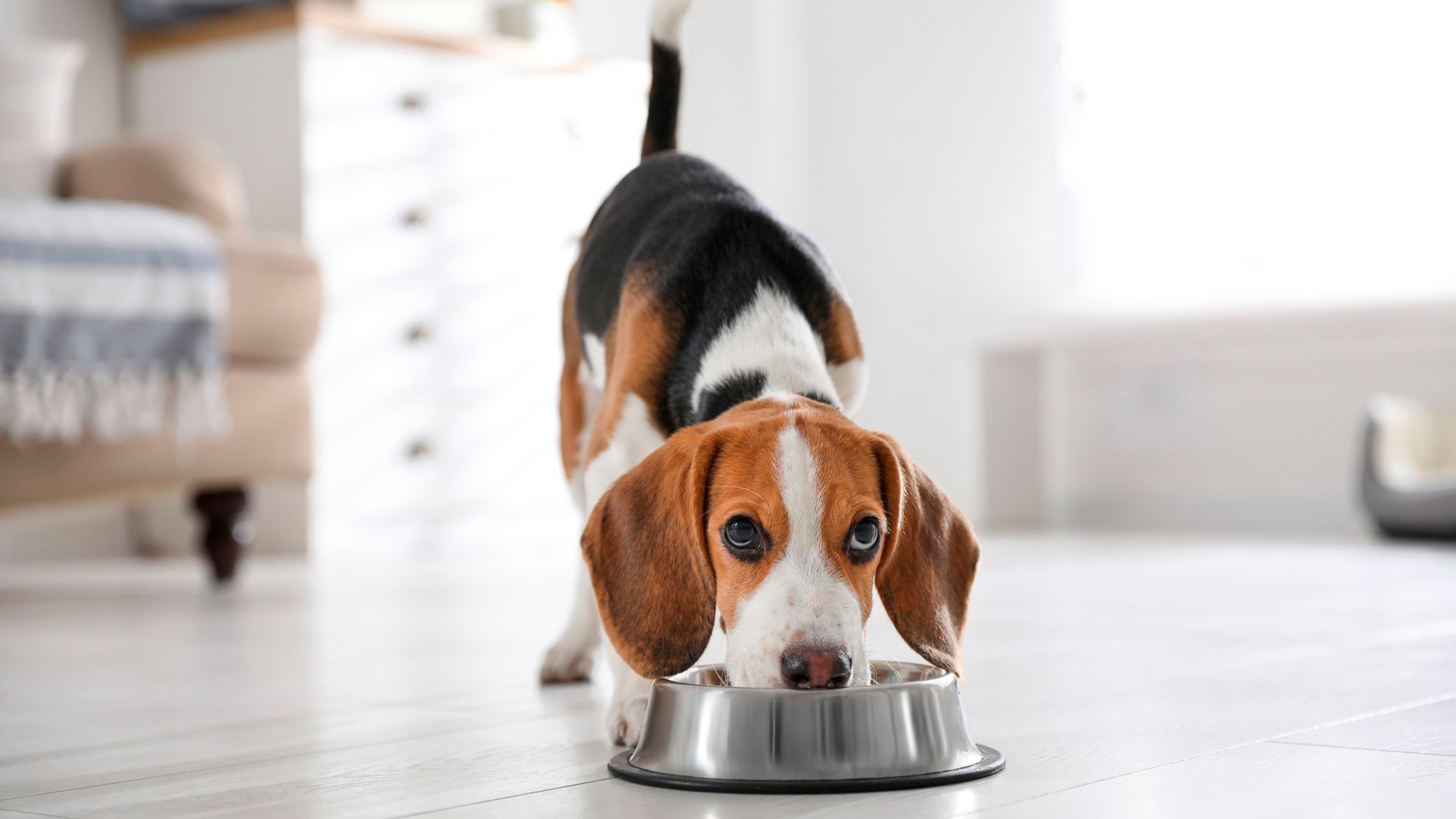Your dog's diet and their digestive health

The dog digestive system
Like other mammals, your dog’s digestive system works to break down the food passing through it, as well as absorbing nutrients it needs.
The dog digestive system processes food in several stages:
- Mouth: Food is chewed and mixed with saliva.
- Esophagus: Food travels down this muscular tube to the stomach.
- Stomach: Gastric juices begin to break down food.
- Small Intestine: Bile and enzymes further break down food, and then nutrients are absorbed.
- Large Intestine (Colon): Water is absorbed, fiber is fermented by bacteria and feces is formed.
- Rectum and Anus: Feces are stored and expelled from the body during defecation.
A healthy canine digestive system has the right balance of ‘beneficial’ bacteria, and correctly functioning immune cells, and its health is maintained by a diet that is appropriate for the individual.
The causes and effects of digestive problems
The causes of digestive problems or stomach/gastrointestinal upset are numerous and can include the following:
- Intestinal parasites
- A sudden change of diet
- Scavenging or eating human food
- Stress
- Intestinal infection
- Intestinal inflammation
If your dog is suffering from digestive sensitivities, some of the signs they might exhibit could include the following:
- Vomiting or nausea (abnormal lip licking) or regurgitation
- Difficulty swallowing
- Abnormal stool, abnormal pooping behavior, or absence of stool
- Gas
- Weight loss
- Reduced or altered appetite
- Abdominal discomfort e.g. tender stomach
- Reduced activity
If your pet is experiencing digestive problems, contact your veterinarian so the cause can be determined and managed.
If your pet is vomiting daily, has a hard/firm abdomen, is lethargic or showing signs of distress, call your veterinarian immediately.
How to choose your dog's diet
The food you feed your dog will influence their digestive health and bacteria in their intestines. How you feed your dog can also influence this. Feeding a consistent diet where treats do not exceed 10% of total daily calories is optimal.
Ensure your dog is fed in a calm environment, to avoid stress during mealtime. When changing the diet, transition over a 7-10 day period by gradually feeding less of the old food and more of the new food. Also, ensure that your dog does not have access to foods or items that can be consumed and make them sick.
Important food qualities to support digestive health include:
- Complete and balanced nutrition ensures that your dog’s diet is properly formulated to meet essential nutrient needs and optimize digestive health.
- Palatability is key as some dogs, including dogs with digestive problems, do not have a voracious appetite.
- Highly digestible protein is rich in essential amino acids and is easily absorbed by the small intestine.
- Fiber is important for feeding beneficial bacteria in the intestines (i.e. prebiotic fiber) and supporting healthy stool quality and regularity.
- Carbohydrates like starch sources, can provide an easy energy source for dogs with digestive problems.
- Fat should be tailored to the individual. Some dogs do best on high-fat food, which reduces the food volume needed. Other dogs are better suited to low-fat food when they cannot properly digest fat. The type of fat (e.g. omega-3 fatty acids) can further help to support digestive health.
While we have provided some general guidance above, it is important to talk to your veterinary team about how to reduce the risk of digestive problems.
If your pet is experiencing digestive problems, notify your veterinarian so the cause can be determined and managed.
How long does it take a dog to digest food?
On average, it takes dogs 8 to 10 hours to fully digest a meal. However, it can take as little as 4 hours or as long as 12 hours, depending on a range of factors.
Some things that can affect your dog’s digestion time include:
- Breed and size - The size of your dog influences the duration of the digestion process. Adult dogs vary significantly in size, ranging from a 5lb Chihuahua to a 230lb Mastiff, with digestive time generally being longer with large breeds.
- Food type - Different foods digest at varying speeds; for example, foods high in fat and soluble fiber will move through the stomach more slowly
- Exercise – Exercise is essential for overall canine health and is generally good for digestive function.
Find a vet
If you have any concerns about your dog’s health, consult a vet for professional advice.
Like & share this page